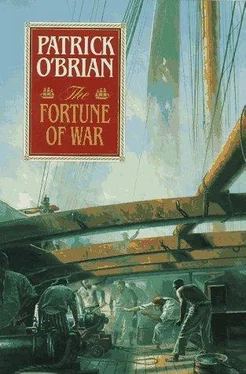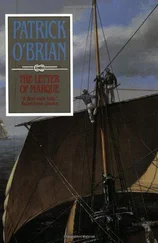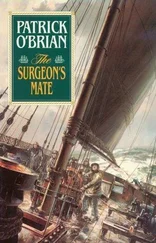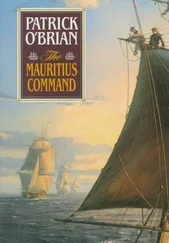Patrick O'Brian - The fortune of war
Здесь есть возможность читать онлайн «Patrick O'Brian - The fortune of war» весь текст электронной книги совершенно бесплатно (целиком полную версию без сокращений). В некоторых случаях можно слушать аудио, скачать через торрент в формате fb2 и присутствует краткое содержание. Жанр: Книги. Описание произведения, (предисловие) а так же отзывы посетителей доступны на портале библиотеки ЛибКат.
- Название:The fortune of war
- Автор:
- Жанр:
- Год:неизвестен
- ISBN:нет данных
- Рейтинг книги:3 / 5. Голосов: 1
-
Избранное:Добавить в избранное
- Отзывы:
-
Ваша оценка:
- 60
- 1
- 2
- 3
- 4
- 5
The fortune of war: краткое содержание, описание и аннотация
Предлагаем к чтению аннотацию, описание, краткое содержание или предисловие (зависит от того, что написал сам автор книги «The fortune of war»). Если вы не нашли необходимую информацию о книге — напишите в комментариях, мы постараемся отыскать её.
The fortune of war — читать онлайн бесплатно полную книгу (весь текст) целиком
Ниже представлен текст книги, разбитый по страницам. Система сохранения места последней прочитанной страницы, позволяет с удобством читать онлайн бесплатно книгу «The fortune of war», без необходимости каждый раз заново искать на чём Вы остановились. Поставьте закладку, и сможете в любой момент перейти на страницу, на которой закончили чтение.
Интервал:
Закладка:
Stephen stepped silently back into the drawing-room and he was studying the turkey-buzzard when Johnson came in, cordial, welcoming, apparently unruffled. 'You are a tolerably good dissimulator, I find,' said Stephen to himself, and aloud, 'Surely this is a very able man. He gives us not the bird, for no bird ever had this brilliant clarity in every member, but the Platonic idea of the bird, the visible archetype of the turkey-buzzard.'
'Exactly so,' said Johnson, and they talked of the turkey-buzzard and of the bald eagle whose nest Johnson hoped to see on Sunday - it was on a friend's land in the state of Maine - until Mrs Wogan and Michael Herapath arrived: at the same moment Diana Villiers came in through another door, and Stephen observed that although Wogan was dressed with particular care, Diana won hands down. She was wearing the lightest, purest blue, straight from Paris, and it made Wogan's Boston gown look painstaking and provincial: furthermore, she had such a rivi� of blue-white diamonds around her neck as Stephen had rarely seen - a huge stone in the middle.
Even before they sat down to dinner it was clear to him that there was ill-will between Villiers and Wogan on the one hand and Villiers and Johnson on the other; and when they were at their soup, an admirable bisque de homard, it became equally clear that there was an attachment between Johnson and Louisa. They did their best to conceal it, but at times they were a little too formal and at others a little too free, the false note continually obtruding. Stephen was well placed to observe them, since the table at which they dined was rectangular and he occupied the middle of one long side alone, with Herapath and Louisa opposite him, Diana and Johnson at either end, and Wogan on Johnson's right. From Johnson's slightly constrained posture, Stephen was pretty sure that he was pressing Wogan's leg, and from Wogan's jolly, lively face it appeared that she did not dislike it.
Stephen was often rather silent and remote at meals; Diana knew this of old, and she spent most of her efforts during the soup and the course that followed on being agreeable to Michael Herapath. Stephen knew that she was barely acquainted with Herapath and he was surprised by the freedom of her conversation, its rallying, bantering tone, and by her telling an anecdote that was at the least ambiguous, a story either witless or indecent. Herapath too was surprised, but he was a well-bred creature and he concealed it, responding in much the same manner, as far as his habits and abilities would allow. This was not very far in the early stages of the meal, but she repeatedly filled his wine-glass and by the turbot he launched into a tale of his own, the only one of the kind he could remember. Yet half way through it seemed to occur to him that the end bordered too nearly upon the scabrous, and with an anxious glance at Stephen, he tailed away into a very foolish though innocuous conclusion. Discouraged, he said no more; and with both her neighbours nearly mute Diana was obliged to take their entertainment upon herself. Her poise did not desert her for a moment; she filled their glasses yet again - Stephen noticed that she took no unfair advantage, but drank glass for glass with her guests -and gave them a detailed account of a journey to New Orleans. It was not particularly interesting, nor amusing, but at least there was a tolerably convincing appearance of conviviality at her end of the table - no awkward silences. Clearly she had had much practice in holding a party together throughout a long dinner: yet from the nature of her conversation it appeared to Stephen that these parties must have consisted of businessmen and politicians: and rather commonplace businessmen and politicians at that. Where was her quick, mordant, wholly spontaneous wit, her delicate turning of a wicked phrase, perfectly attuned to her company? Could she be reduced to anecdotes and set pieces, when neither he nor Herapath was a politician? She had also acquired a slight American accent, dead against her style. But, on the other hand, had she ever in fact possessed the particular excellencies whose absence he now so deplored, or had they existed only in his infatuated mind? No: she had possessed them. His memory was filled with objective proofs of that, and even if it had not been, her physical appearance was convincing evidence. To some degree every person's face was the creation of the mind behind it, he observed, thinking sadly of his own, and Diana's face and form and movement still reflected much of the fine dashing elegant spirit he had known.
It occurred to him that she had spent these last few years entirely among men, seeing no women apart from a few like Louisa Wogan; she spoke rather as men, and somewhat raffish, moneyed, loose-living men, speak when they are alone together. 'She has forgotten the distinction between what can and what cannot be said,' he reflected. 'A few more years of this company, and she would not scruple to fart.' A delicate distraction, that between true spirit on the one hand and boldness and confidence on the other: he was pursuing this line of thought when a fresh decanter appeared and Diana, visibly irritated by an indiscretion on the part of Johnson and Louisa, cried, 'God's my life, this wine is corked. Really, Johnson, you might give your guests something they can drink.'
Extreme concern on the black butler's face: a glass hurried down to the other end of the table. Silence, and then the verdict, delivered with studied mildness: 'Surely not, my dear: it seems quite sound to me. Take a glass to Dr Maturin. What do you say to it, sir?'
'I am no great judge of wine,' said Stephen. 'But I have heard that very occasionally the mouthful just round the cork may have an ill taste, while the rest of the bottle is excellent. Perhaps that is the case here.'
It was a poor shift, but enough for minds willing to avoid an �at: the decanter was replaced and the conversation became more general. Herapath struck in with some considerations on the inevitable delays of the press: presently they were talking about the publication of his book, and it was pleasant to see Louisa Wogan's eagerness as they discussed the character in which it was to be printed, and the size and quality of the paper; she certainly had an affection for Herapath, but perhaps it was more the affection of a sister rather than of a mistress, a somewhat pharaonic sister.
Stephen too aroused himself to a sense of his social duty, and with the roast he told Diana and Herapath about the voyage in the cutter after La Fl�e had burnt - their consuming hatred for a ship that passed without seeing them - their insatiable appetite for biscuit when they were taken aboard the ill-fated Java at last. 'Between breakfast and dinner,' he said, 'I saw Captain Aubrey eat three and a half pounds, taking a draught of water at eight-ounce intervals; and I kept pace with him, crying out at their perfect suavity, pitying Lucullus for not having known ship's biscuit before the high-weevil stage: for Java was only four weeks out.'
Diana asked him about Jack's present state of health, and when he had answered she said, in a momentary pause, 'Do please remember to give him my love.'
To his surprise Stephen saw Johnson stiffen, sit straight, presumably detaching himself from Wogan, and ask, 'Who is this gentleman to whom you are sending your love, my dear?' in a voice that endeavoured, without much success, to hide its strong displeasure.
'Captain Aubrey,' said Diana, raising her head with that fierce, beautiful gesture that Stephen remembered so well. 'A very distinguished officer in His Majesty's service, sir.' But then, breaking the tension, she added meekly, 'He is my cousin by marriage. He married Sophie Williams.'
'Oh, Captain Aubrey,' said Johnson. 'Yes. The gentleman I am to see this afternoon.'
Читать дальшеИнтервал:
Закладка:
Похожие книги на «The fortune of war»
Представляем Вашему вниманию похожие книги на «The fortune of war» списком для выбора. Мы отобрали схожую по названию и смыслу литературу в надежде предоставить читателям больше вариантов отыскать новые, интересные, ещё непрочитанные произведения.
Обсуждение, отзывы о книге «The fortune of war» и просто собственные мнения читателей. Оставьте ваши комментарии, напишите, что Вы думаете о произведении, его смысле или главных героях. Укажите что конкретно понравилось, а что нет, и почему Вы так считаете.












